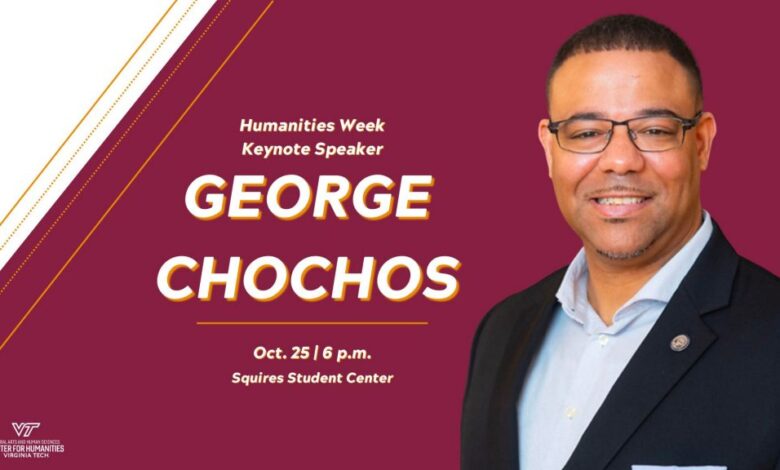From jail to Yale: Humanities Week keynote speaker to focus on prison education as a humanizing force | Virginia Tech News

Chochos is now a Ph.D. candidate at Georgetown University. He’s also a senior program associate with the social justice organization Vera Institute, where he supports college-in-prison programs. He joined the institute in 2020 as a senior federal policy associate to work on Pell reinstatement for incarcerated students.
The Virginia Tech College of Liberal Arts and Human Sciences and the Center for Humanities welcome Chochos as keynote speaker for Humanities Week. Chochos’s involvement in prison education initiatives aligns with efforts by the Center for Humanities to help expand educational opportunities in the prison system.
Sylvester Johnson, the center’s director and associate vice provost for public interest technology, and a team of Virginia Tech students recently participated in a prison education pilot program.
In advance of his visit to Blacksburg, Chochos answered five questions about his life and mission.
You describe yourself as a system-impacted scholar and practitioner. You’re also committed to advancing prison and criminal legal system reform and advocacy. Can you share a turning point in your life that crystallized your passion for this work?
While incarcerated, my faith conversion and educational journey began.
When I entered Sing Sing Correctional Facility in New York State, I was told there were no college programs. But in the first year of my 14-year sentence, I accidentally walked into a classroom and found out there was a master’s program available. I met the graduate students and their brilliance drew me in. I started to see a different life was possible, even in prison. From there I went to Eastern [Correctional Facility] and was one of 15 people accepted into Bard College through the Bard Prison Initiative.
Through my education, I found the will to dream while living in a nightmare.
How did your humanities education within the prison system help to transform your life?
Studying the humanities opened up a window into the world that I never knew existed and it allowed me to envision a once seemingly impossible future.
In your role with the Vera Institute of Justice, you provide assistance to college-in-prison programs. What do you find rewarding about your work?
When I look into the eyes of the men and women in prison, whether at a graduation or a site visit, I see hope.
One example: After I spoke at Eastern Correctional Facility, I received a letter from one of the men in the program who wasn’t planning on attending the meeting I was participating in. He told me he was about to give up because of how many years he had in prison ahead of him. He said he was so glad he came because it gave him hope to not give up but move forward.
You’ve earned a variety of degrees throughout your educational journey and are currently a Ph.D. candidate at Georgetown University. How has your continued pursuit of education helped shape your career and personal life?
I used my role as a student in prison as a way to engage the world. When I entered Yale, the classroom felt just like any other classroom I had been in — in or out of prison. Continuing my education helped me re-enter society in a way that allowed me to be in a space I understood and feel comfortable in. The classroom made being in a strange new world eerily familiar and safe.
Your work in the field of prison education is insightful and inspiring. What is one key thing you hope the Virginia Tech community and the public will take away from your keynote address?
Humanities in education is humanization. It is mitigating against the dehumanizing process of “inmate-ization.”




